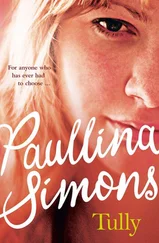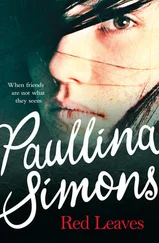1 ...8 9 10 12 13 14 ...28 I didn’t know what to say. “How come you never told me?”
“You never asked. I told you your daddy had died. I thought that was enough. I didn’t want to upset you. You were always so sensitive. I thought when you were ready you would ask.”
“How come we never visited him in prison?”
“He was too far. He was tried and convicted in California. I didn’t want to take you on the bus. I was saving up my money for us to fly, but then he up and died.” She stood in front of me, still holding her teacup, her gray hair set in curlers, her houserobe clean and smelling of detergent.
“What was he doing in California?”
Emma didn’t answer at first, rubbing her cup. “I reckon,” she said at last, “the same thing you’re about to do.”
She was right. I hadn’t been ready, and was still not ready. Only when she had fallen silent did I catch the hook between the lines: your father went to find your mother and he ended up dying in prison. And now you’re going .
Straining hard to be grown-up, but staring hard to glean her reaction, I asked, “You think my mother is still alive?” I was hoping she’d say, no, Shel, she’s long dead. Don’t go anywhere. Please. Stay here.
I wanted her to say it.
“How would I know, Shelby?” she said. “Perhaps.”
Perhaps, perhaps, perhaps. What does one say to that?
“Where’s the letter she wrote him before she left?”
“What letter?” Puzzled at first, suddenly she frowned. Her neutral gaze darkened. “Oh my God. Have you been believing vicious gossip all these years? What’s wrong with you? Why are you so eager to make up things about your life? What, life isn’t hard enough?”
Life was hard enough. “ Am I making it up?” I mouthed.
“What do you think is going on around here?” Emma clunked her cup down! “Who do you think I am? Who do you think has been raising you all these years?”
I didn’t answer, but she glared at me as if expecting an answer. So finally I said, “I thought my father left my mother to be with you. So she left.”
Gasping and falling speechless Emma straightened, her usually kind and casual eyes flushed with incomprehension. “I simply don’t understand who you are. Shelby, your father didn’t leave your mother. Your mother left him. And for your information, I am not your father’s slutty mistress. I am his sister.”
I sucked in my breath. “You are?” I was dumbfounded. “How can that be?” I stammered after minutes of silent shame. “You—you—have different last names.”
“So, expert on names? We had one mother. Your father was ten years younger than me.”
“You are my aunt ?” This could not have been said with more incredulity than if I had said, you are a man?
“Why do you think you called me Aunt Emma?”
“I was just a kid then,” I muttered.
“Yes, and with more sense than now, after twelve years of school. When your father set out to look for your mother, he said he’d be back in two weeks. I agreed to watch over you. Two weeks turned out to be thirteen years. He left you with me because there was nowhere else for you to go.”
I was ashamed and ashen. Humiliation sometimes turns into a parade of pride. It did so with me. To cover up, I said, “Well, why didn’t you ever tell me?”
“You called me Aunt Emma!” she nearly yelled.
“Just a name,” I doggedly repeated.
She shook her head. “Yes. Just a name of your daddy’s sister.” She was breathing heavily, gathering her thoughts. “Does it benefit you to talk down your life? To make it up out of damaged cloth? Did you ever ask yourself why a jilted and abandoned woman would raise her ex-lover’s wayward, ungrateful and preposterous child?” I asked myself this a thousand times a day.
“Because that’s you, Shelby,” Emma continued. “Preposterous and ungrateful. You’ve been spinning and believing these lies about yourself, but it’s not to make yourself feel better. It was always to make yourself feel worse.”
I had nothing to say after that.
Neither did she.
“I’m leaving tomorrow,” I said. “And I’m not coming back till I find my mother.”
“Good,” she said. “By all means, I beg of you, do keep open the questions of youth. As if they’re the important thing.” She turned to go. “That’s what your father said, too, by the way. But perhaps you’ll need your mother’s name, if you’re going to be looking for her, and all.” She fell silent and waited.
Why was she waiting? As if she were holding her breath for me to choose to stay or choose to go. But she gave me a car! I had to go.
I had to.
“What was her name?” I asked, defiantly.
Emma lifted her teacup off the table, her gray face tight, her gray eyes sober. “Lorna Moor.”
Lorna Moor!
My mother hadn’t left a letter. But she did send a postcard. Emma showed it to me. It had daffodils on a Main Street and beyond them cliffs and a hard-breaking ocean. Mendocino, California , the card’s location read, and in small sloppy handwriting, “ Say hi to Shelby .”
This is how you move toward the rest of your life: sometimes by repetition and, sometimes, by revolution.
TWO
It was a beautiful late June morning when I set off. I got to Gina’s house around nine. It had taken longer than expected to pack up and get out. I had told Gina to be ready at eight. I think I milled around for a few extra minutes to see if Emma would say something to me. What, no words of wisdom? She said, “Do you have what you need?”
And I said, “Yes.”
“You don’t.” She brought something out from my bedroom. “You forgot this.” She was holding my pillow with the pink cotton jersey cover. “You know how you don’t like to sleep without it.”
She was right, I didn’t like to sleep without my pillow. “I don’t want to take it, Emma,” I said. “I’m afraid I’m going to forget it in a motel room. I’d rather have it waiting for me when I come back.”
Emma laid it down on the kitchen table. “Okay.”
Absurdly I kept feeling my cash, all of it in one large manila folder. It made me feel vulnerable carrying it like that; one snatch, the whole trip over. I should have bought a purse. But what was I going to do, carry $2000 in my purse to the convenience stores to get a Coke? But now what to do with it? Leave it in the glove compartment? I opted for the bottom of my suitcase, all except twenty bucks in the back of my shorts for drinks and things.
Emma gave me a pat with a little squeeze. “Be well,” she said. “Be good.” She didn’t even say be careful. Personally I would’ve thought that was a prerequisite, but what do I know. Perhaps a mother would’ve said it.
At Gina’s house, her mother, Kathy Reed, was fussing over her like … well, like a mother whose eldest daughter was taking an unprecedented trek across the country. Morning, evening, Kathy Reed was always exceptionally coiffed and this morning was no exception. Made up and in a soft-knit skirt, she carried Gina’s suitcase to the car herself, stepping across the lawn in her beige three-inch heels. “Shelby! I haven’t seen you in ages.” She hugged me, smiled. “How’ve you been?”
“Very good, Mrs. Reed,” I said, but she was already walking back to the house to fetch another bag. I hoped it would fit in my trunk.
Gina’s grandmother was there, too, hobbling on her cane, muttering, trying to dispense advice. “Bring a jacket. You’ll get cold.” “Bring a book. Shelby, did you bring a book?” “Bring all the telephone numbers in case of emergency.”
All telephone numbers? I mouthed to Gina. Like all telephone numbers? She laughed.
Читать дальше












